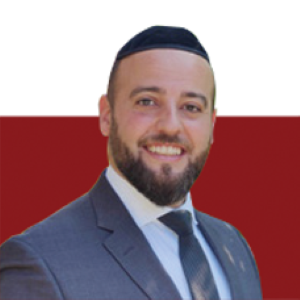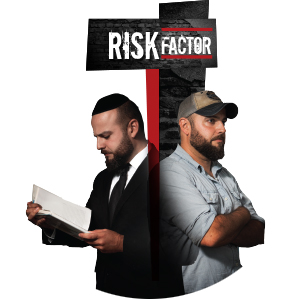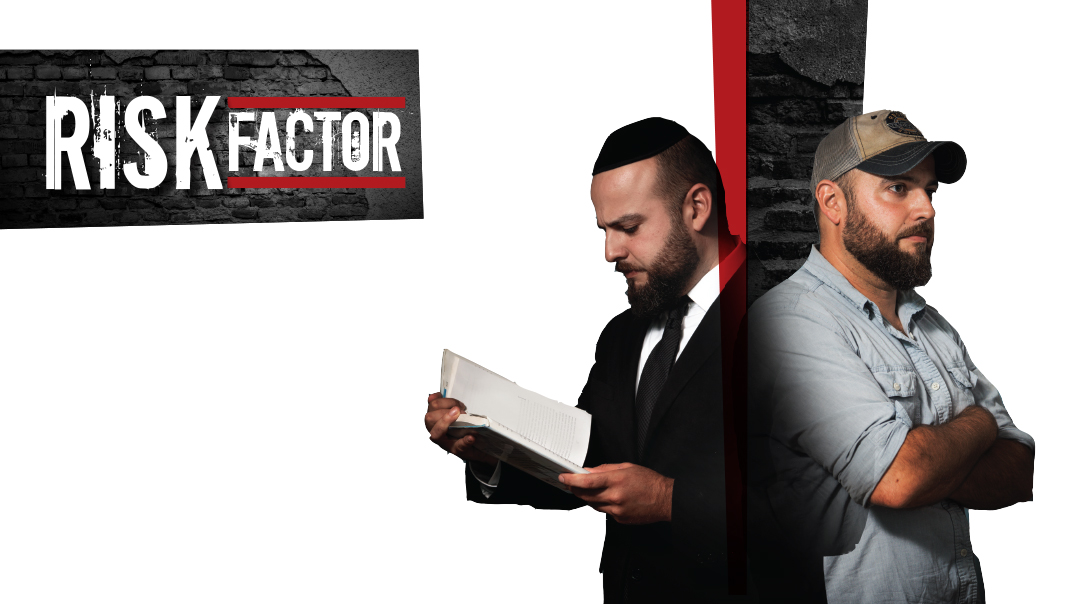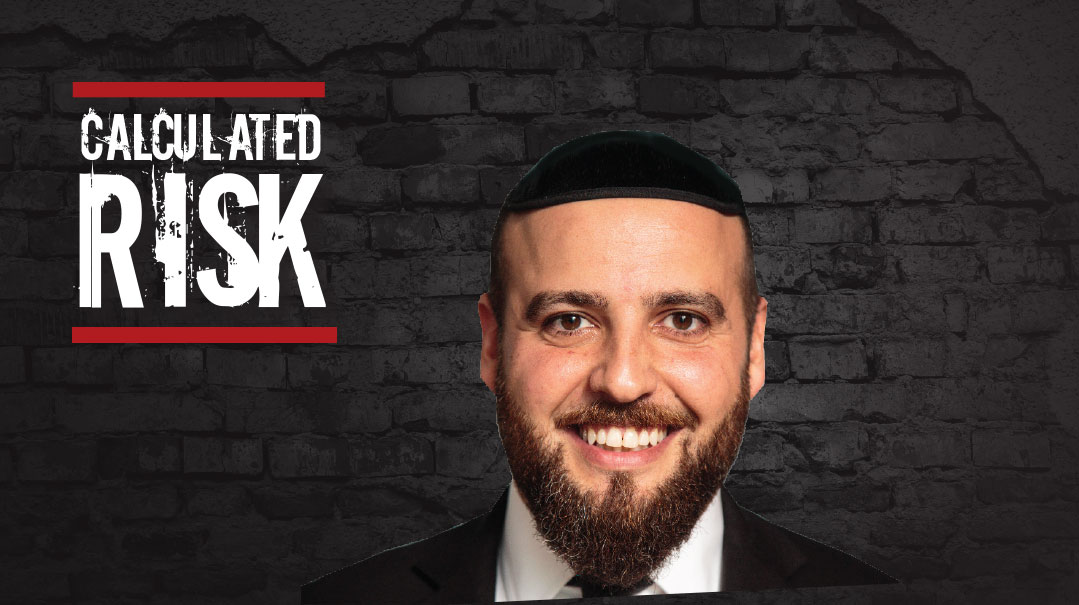Long Distance

Mommy, I tried to be there. Please tell Abba that 500 miles and quarantine is nothing for a Bivhilu
I’

It wasn’t just the Pesach Seder.
It was Bivhilu.
Bivhilu happens right before Ha Lachma Anya — the head of the household goes around the table with the ke’arah as everyone sings the words “Bivhilu yatzanu miMitzrayim.” As he circled the table, my father would stop at each person and give an individual brachah. He spoke quietly, so that only he and my parents’ third partner, Hashem, could hear him.
It was an extremely spiritual and emotional moment. No matter the age or standing, every child got a brachah. Each one of us, for that moment, was the king of that table. We believed we were taken out of slavery with love and given something so much greater because in that moment, we felt it.
I continue this tradition at my own Pesach Seder. No matter how many of my extended family or students are there, everyone gets a moment of malchus.
Those unfamiliar with the minhagim of Moroccan Jewry who show up to our Seder might think they’ve walked in on a crazy camp play, or that maybe we all just lost our minds. That’s certainly what Chase thought when he walked into my apartment on Machal Street in Jerusalem that Seder night.
Chase had been to my house many times for Shabbat and dinner over the course of that year in Ohr Somayach. But that night, he walked in and stopped short. There were drawings of the Makkot hanging everywhere, everything was draped in gold and burgundy, and there were crowns at each place setting. Gold coins and costume jewelry were strewn across the table, and the hallway was decked out to look like Kri’as Yam Suf. My entire family were wearing the traditional Moroccan kaftans — long, flowing jalabiyas of gold and white.
Chase burst out laughing. “Rabbi, have you lost your mind?”
That was Chase. He was a self-proclaimed atheist, hated religion, and claimed there was no place in Judaism for “a guy like me.” He let everyone know he wasn’t coming back after this year. He was what an acquaintance had called “hard to love.”
But I’d discovered his weak spot: family. Family with kids, in particular.
Chase would sit at my Shabbat table for hours, hanging on to every devar Torah or story my kids had to share. He would shush others if they dared interrupt when one of the kids was talking, and he was extremely protective of them. As I got to know Chase, it was easy to identify the traumas that had informed a lot of his ideas about life. But however much work Chase and I did together, he remained firm in his belief that religion had no place in his life.
Now I smiled as I answered him. “It’s for the kids, Chase,” I said.
He looked over at the children, all dressed up and looking at their favorite guest with shining faces. He smiled back, then turned to me with a serious face and nodded, as if to say, I get it, proceed.
But that didn’t stop Chase from being Chase: at Urchatz he refused to wash his hands, insisting they were “already clean,” and at Karpas he commented that “bland potatoes with saltwater is the Rebbetzin’s best appetizer” (he knew my wife hates being called “Rebbetzin”). My kids rolled their eyes and poked fun at him for trying to be different. He usually participated in the end.
Finally, we reached Bivhilu.
I stood up and explained to everyone that this was the highlight of my Seder as a kid, and I spoke a little about the spiritual and kabbalistic meanings of the minhag. But as I lifted the ke’arah, Chase called out, “No way! There are too many people here, this is gonna take forever. By the time you get to me, you’re gonna drop it on me!”
“Chase,” I told him, “if you don’t want it, I won’t do it for you. But you’re a part of our family, and I just want you to know that if you refuse, you’re going break my heart.”
“Chase!” my daughter Eliana scolded him, “you’re hurting my papa’s heart!”
Chase looked at me. “Cheap shot, Rabbi. I’m going outside for a smoke. If you’re still going by the time I get back, I’ll do it.”
I started. Kids first. I cried by each one. The tefillah of a father would make the strongest of men cry. I’m not the strongest of men. It’s a lot of crying.
As I got closer to Chase I realized he hadn’t moved. His gaze was fixed on me.
Now there were just two people between me and Chase. Then one.
When I reached Chase, he didn’t budge. My kids sang loudest for him. Please let him feel he belongs, I begged. At least for tonight. At least here. Where would I be without having felt like I belonged at my parents’ Seder? Without my Abba’s Bivhilu?
During the meal, Chase pulled me aside. “I don’t know where I’ll be next year or any other year. But I want one of those every year, no matter where I am.”
I saw an opportunity. “Chase,” I said, looking him in the eye, “it doesn’t work long distance, my man. You gotta be here.”
He looked back at me and nodded.
That night, Chase did begin to feel that he belonged. He stayed, and with time, he grew.
But with everything that’s going on around us now, I have to say: Chase, I take it back. It can work long distance. I’m doing a Bivhilu for you this year.
And one more thing: Mommy, I really tried to be there this year. Please tell Abba that 500 miles and a quarantine is nothing for a Bivhilu. I’ll be at my Seder this year, doing Bivhilu for my kids, waiting to feel yours.
Identifying details have been changed to protect the privacy of patients, their families, and all other parties.
Rabbi Yossi Bensoussan serves as mashgiach ruchani at Yeshiva High School of Cleveland. He is a Certified Alcohol and Substance Abuse Counselor (CASAC) who currently maintains a private practice and does motivational speaking and community education on addiction all over the US and Israel.
(Originally featured in Mishpacha, Issue 806)
Oops! We could not locate your form.









